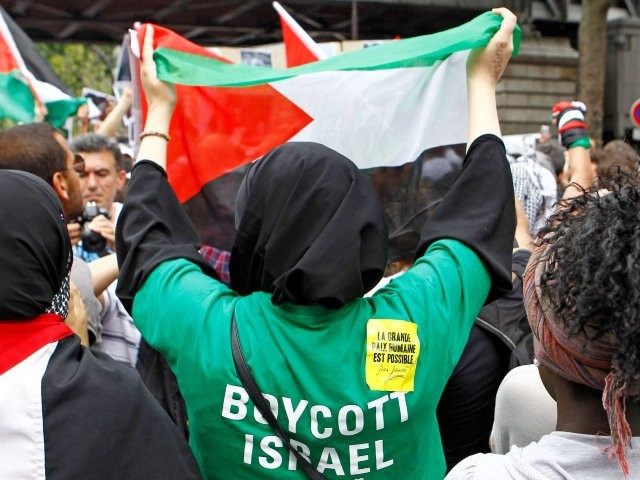JERUSALEM – Israel has decided that it will not stand idly by in the face of the European Union’s decision to label all goods produced in the West Bank, Gaza Strip, eastern Jerusalem and the Golan Heights.
It will take measures against 16 European countries that backed the initiative, likely damaging relations between Israel and the EU, Israeli website Ynet reported.
Some of the 16 countries backing the labeling, including Italy and the Netherlands, have better relations with Israel than others, so measures against these countries will be less harsh than countries that have been more hostile towards Israel such as Ireland and Sweden.
Steps include reexamining the EU’s role in the peace process and restricting meetings between EU ambassadors to lower tier government figures. Ambassadors from all 16 countries will receive official censure from Israel’s Foreign Ministry.
“In addition, any foreign delegations seeking to visit the West Bank and Gaza will undergo a much stricter process for entry and may even be prevented from entering those areas entirely. Official representatives from said governments may be denied meetings with the prime minister or the president.
“From now on we will be very measured in how we behave with these visitors,” a senior Israeli official said. “We will control the flow of [passage] and will not authorize things automatically.”
Ynet further reported thatIsrael will be more stringent regarding which EU projects it allows in the West Bank and Gaza Strip, thereby diminishing the EU’s influence in those areas.
“They lead many projects which need our support, but you can’t act against us and then expect that everything will continue as normal,” said the official. Finally, dialogue between the EU and Israel – especially on crucial topics like strategy, fighting terrorism, and handling immigration – will be reduced, postponed, or halted.
“Whoever takes hostile measures against us will pay the price,” said the source. He was quick to add, however, that no measures will be taken if they harm Israel’s own interests. “We had to walk a tightrope between things we wanted to do so that they would get the message and not hurting ourselves.”
Meanwhile, EU’s ambassador to Israel, Lars Faaborg-Andersen, persisted on Wednesday with his claim that the decision to label Israeli products does not mean Europe is boycotting Israel or the settlements.
“I’ve been shocked to hear claims of anti-Semitism and historical comparisons or analogies to the persecution of Jews in Germany in the’30s and’ 40s,” Faaborg-Andersen said at the Jerusalem Post’s Diplomatic Conference in Jerusalem. “In my mind this is a distortion of history and belittlement of the crimes of the Nazis, and the memory of their victims.”
“The European Union has been accused of a variety of sins, including today from this podium,” Faaborg-Andersen lamented. “Anti-Semitism, hypocrisy, immorality, rewarding terrorism, destroying Palestinian jobs. These allegations have been made by people coming from the highest echelons in this country.”
Faaborg-Andersen also accused Israel of hypocrisy. “How is the stated commitment to a two-state solution compatible with continued building in settlements, including in many settlements beyond the separation barrier that would not be part of Israel in any peace agreement?
“True, settlements are certainly not the only problem [in regard to peace] – but they are definitely a significant and crucial problem.”
Earlier in the week, Breibart Jerusalem reported on Faaborg-Andersen’s contradictory explanation for the labeling.
On the one hand he insisted Israel was not being singled out and the practice was part of a “uniformed standard” that applied to products from all over the world, but when he was presented with the fact that other disputed regions – of which there are over 200 globally – were not subject to the same labeling Faaborg-Andersen rationalized that those situations were different from Israel’s.

COMMENTS
Please let us know if you're having issues with commenting.